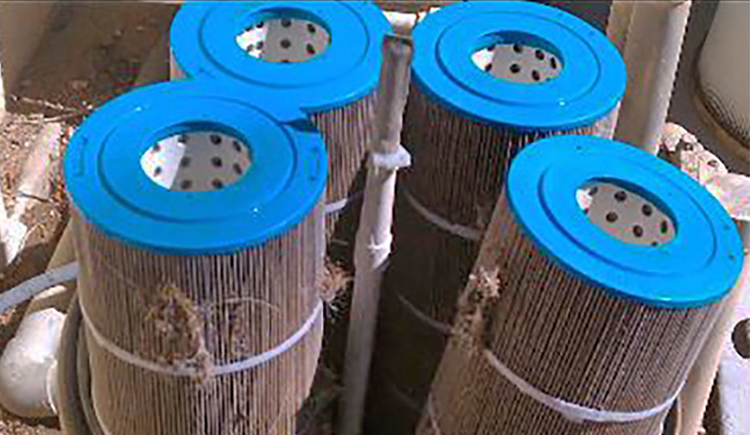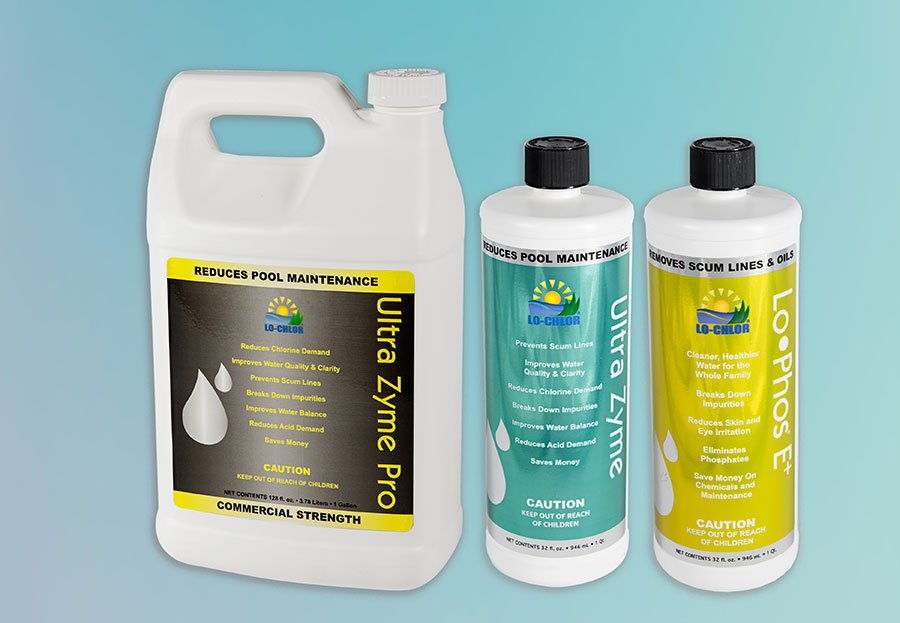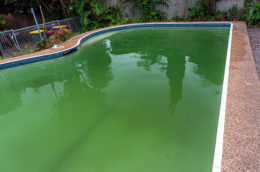
Enzymes: Save Pools from a Wide Variety of Problems
Does your pool have good filtration? Is it keeping water clean and clear? Many pools exhibit a wide variety of problems despite reliable additions of chlorine and good water turnover.
Does your pool have good filtration? Is it keeping water clean and clear? Many pools exhibit a wide variety of problems despite reliable additions of chlorine and good water turnover.
Common recurring pool problems:
- High chlorine demand
- Fouled filters
- Persistently hazy water
- Algae outbreaks
- Water balance problem
- Waterline scum build-up
Often these problems have a common origin: organic debris (also known as organic waste) in water.
Organic debris enters the pool regularly as “bather load” (sweat, dead skin cells, suntan lotions, oils, cosmetics, hair products, etc.) or as plant fragments, insects, soil or fertilizer that fall into the water. Some of these contributors can be seen but some are invisible. Frequently pool water problems are mis-diagnosed and time and money are wasted. When nothing tried seems to work, the issues can typically be resolved with enzyme use.
Because these nuisance contaminants can be removed with enzymes, it makes sense to try enzyme formulas earlier in the game! When you do, you’ll have a lot less work and you won’t be fighting these symptoms regularly. That’s a huge benefit for water quality, reduced maintenance effort and reduced chemicals.
Experience clean and clear pool water
Enzymes destroy organic debris molecules by chopping them into ever-smaller bits – like converting apples to applesauce – and the end product exits the pool through evaporation (rather than being trapped on the filter.)
Use high-quality enzyme products to easily and quickly solve a wide variety of problems and help clarify, purify and balance swimming pool water.
With routine use, high efficiency enzymes will also improve filter run cycles and lengthen the lifespan of the pool filter media.
For Commercial Pools: Use enzymes regularly, especially for challenging high-load pools where large amounts of organic waste are found. This also aids in reducing chlorine use and overall chemical expenses as well as maintenance time spent.





This Post Has 0 Comments